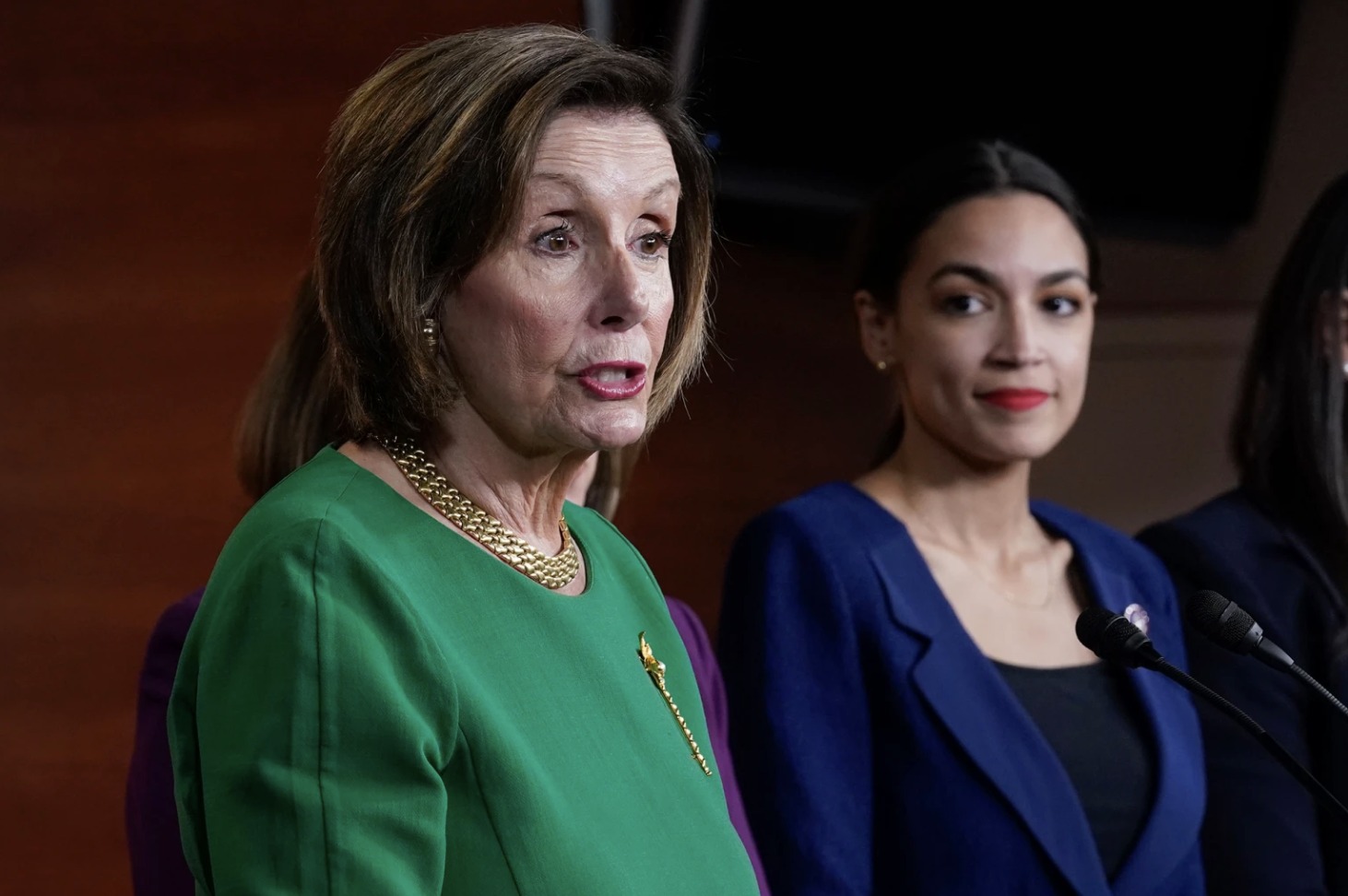
Late in the evening of November 5th, The House of Representatives passed a 1.2 trillion dollar infrastructure bill, marking an essential leap forward for President Biden’s agenda. However, with 13 Republicans voting for, and six Democrats voting against the bill, notable party breaks force a re-examination of how to define such legislation. Marketed to America by President Biden as a “Bipartisan Infrastructure Bill,” what happened behind closed doors suggests that it was anything but. The bill was instead a piece of centrist legislation lacking support from both extremist party wings, highlighting the lack of true bipartisanship in American politics today.
The six Democrats who voted “nay” on the bill were the famed progressive “Squad” members Ilhan Omar, Cori Bush, Alexandria Ocaso-Cortez, Jamaal Bowman, Rashida Talib, and Ayanna Presely. They were at odds with Speaker Pelosi, reluctant to vote on the Bipartisan Infrastructure Bill (BIB) without also voting on the rest of Biden’s “Build Back Better” Act. These politicians believe that if the two were not passed together, Democrats would be compromising too many essential pieces of Biden’s agenda. Progressives assumed the full spending act would be abandoned completely by moderates—never even making it to the House floor—if the BIB was passed first.
In a statement on the evening of the vote, Omar asserted that “passing the infrastructure bill without passing the Build Back Better Act first risks leaving behind childcare, paid leave, health care, climate action, housing, education, and a roadmap to citizenship,” holding firm the progressive stance on the issue. This vote spotlights the widening fissures within the Democratic party between the centrists like Rep. Josh Gottheimer (D-NJ), and the progressives, which include more than just the “Squad.”
On the other side of the aisle, the 13 Republicans who broke with their party explained to the press that they supported the bill because it “would deliver badly needed money for transportation and other projects in their districts.” Similarly to the Democrats, the same divisions are being drawn between the party centrists and the increasingly radical, right-wing members of the “Freedom Caucus” like Marjorie Taylor Green (R-GA), who publicly branded her colleagues as “traitors” after the vote.
In this era of extreme polarization, even infrastructure creates divides just because of the party name associated with the bill. “Investing in the nation’s roads and bridges was once considered one of the last realms of bipartisanship in Congress” notes Catie Edmonson of The New York Times, but now there are many “who regard their allies’ votes as a betrayal.” Congress is now paralyzed by negative partisanship, believing that one party only succeeds by making the other party fail. While the constant pursuit of bipartisanship within Congress was one of the founding pillars of American politics, it has now deteriorated into a mirage of sorts, sought only by the few remaining centrists in each party.
The simple fact is that bipartisanship in the traditional sense just doesn’t exist anymore. In its place stands an ambiguous centrist party, which controls most of the legislative activity in Congress today. Republicans and Democrats joining together over party compromises is an antiquated conception of policy-making. Yet, somehow the word “bipartisan” is plastered on many big, token presidential agenda items in the naïve hope that “this” will be the bill that brings America together.
Twenty years ago, we would have seen efforts by the majority party to get the minority party members on board with an item. Now, we watch leaders like Pelosi struggle to hold their party together, desperately pleading for their far left or right wing members to join in support of a bill like the BIB. Gone are the days of politics defined by Democratic versus Republican views. This is now a game of radical versus moderate politics— and the dice are weighted heavily.



